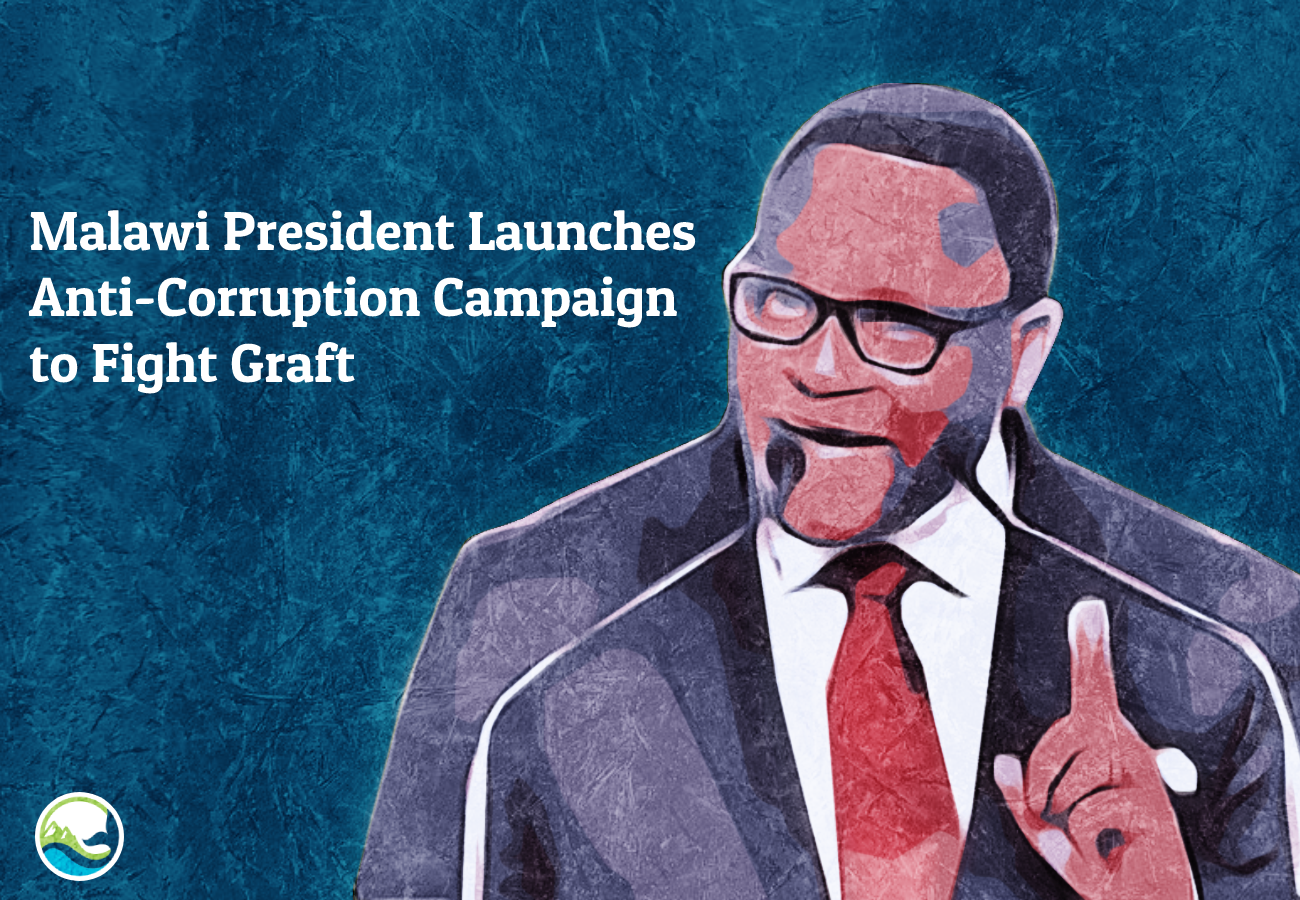
Malawi President Launches Anti-Corruption Campaign to Fight Graft
27 Jul 2022 (VOA News)
Malawian President Lazarus Chakwera launched a nationwide anti-corruption campaign Tuesday at the end of a two-day conference on graft. While many Malawians have welcomed the campaign as a step forward, others are skeptical and note that similar efforts in the past have failed.
Chakwera’s 20-week anti-corruption campaign calls for Malawians to recite and abide by the campaign’s slogan: “Corruption is our biggest enemy and is not welcome here.”
“This is an important campaign that we are starting today,” Chakwera said. “It is important because every time we say those words, we will make it known to those around us what we think of corruption and what we are personally committed to do about it.”
This is the first national anti-corruption campaign during Chakwera’s administration, which started in 2020.
During the launch, Chakwera also co-signed statements of commitments from 12 institutions that detailed their plans of action for fighting corruption.
The 12 stakeholders include the judiciary, civil society organizations, the business community, traditional leaders and parliament.
Fiona Kalemba, clerk of Malawi’s parliament, said, “The legislature pillar commits to the president and people of Malawi to take the following interventions: Reviewing the laws, including the Corrupt Practices Act, the Public Procurement and Disposals of Assets Act, the Public Audit Act, the Political Parties Act and [the] Public Finance Act.
“This will be done within the mandate of the legislature and the purposes of the mandate for the legislature,” she added.
Also, the business community pledged to name and shame businesses and entrepreneurs involved in corruption and have their names published in the media.
The new campaign comes at a time when Malawi is struggling to end corruption.
“A week does not pass without new revelations about embezzlement of public funds, corruption of public procurement contracts of goods and services, and incidents of abuse of office across the sectors,” said Martha Chizuma, director of the Anti-Corruption Bureau in Malawi.
The latest report of Transparency International, the global corruption perception index, ranks Malawi 110 out of 180 countries, which Chakwera said is worrying.
However, some Malawians remain skeptical.
George Phiri, former political sciences lecturer at the University of Livingstonia in northern Malawi, welcomes the campaign but doubts it will reach its goal.
“For this campaign to reach each goal, it will be until we see those involved in corrupt practices being arrested, their cases taken to court and prosecuted, and judgment passed on those who are guilty,” he said. “That is when I will say that, indeed, what has happened today has come to the expectations of Malawians.”
Chizuma, the director of the Anti-Corruption Bureau, said the government cannot interfere with the bureau’s operations if the campaign is to meet its goal.



